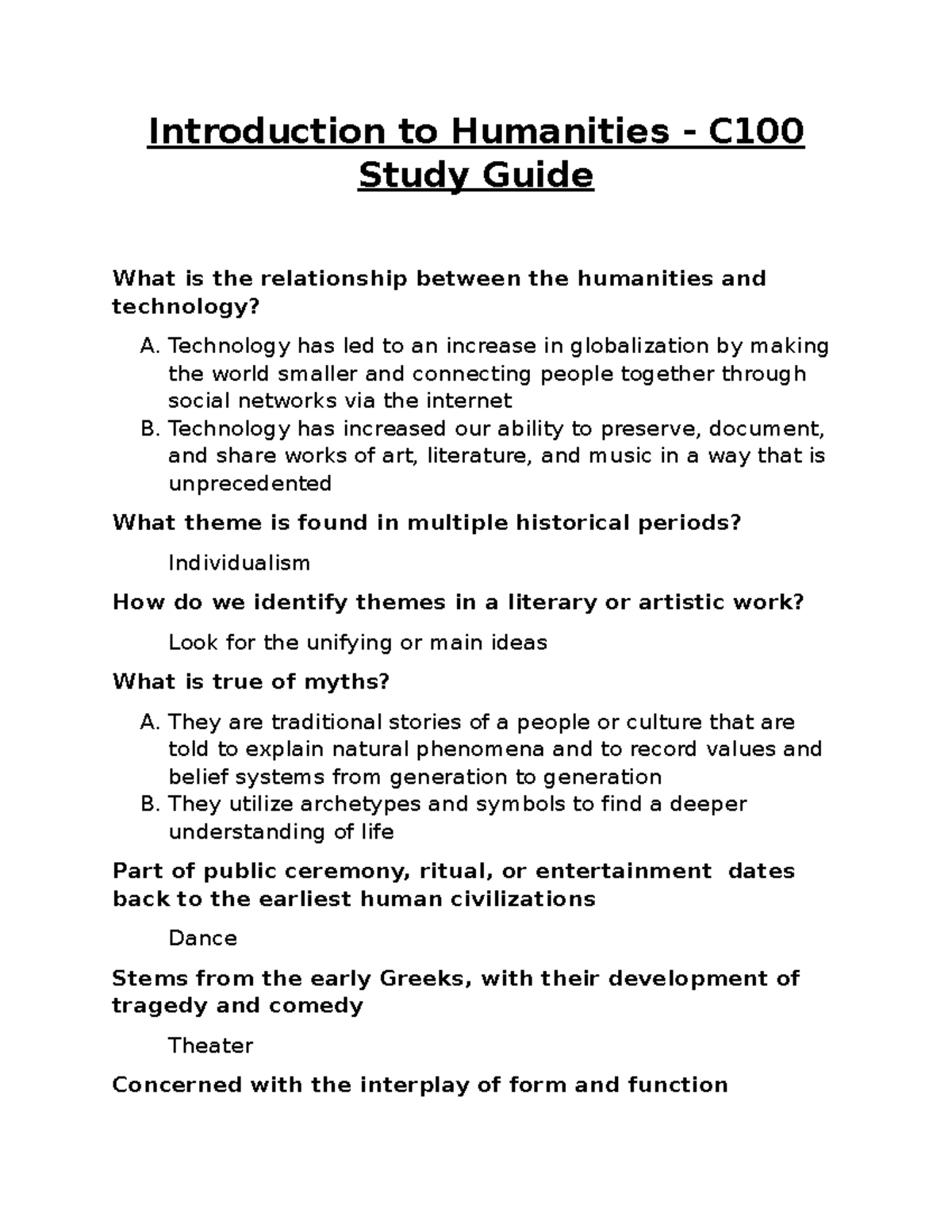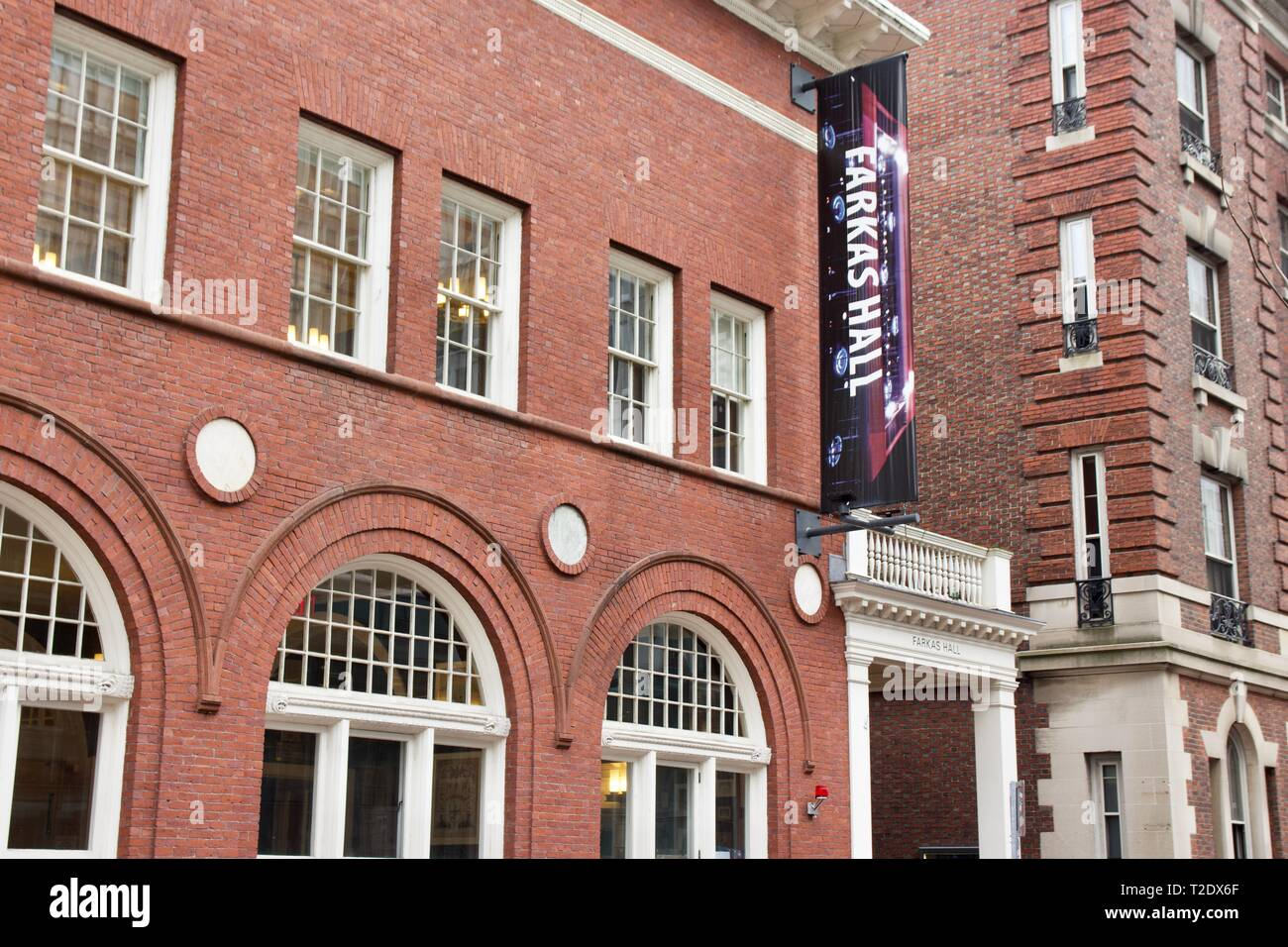Introductory humanities courses play a pivotal role in shaping first-year college students’ academic journeys by bridging various disciplines within the arts and humanities curriculum. As educational institutions face a decline in enrollment in these fields, innovative arts education initiatives, such as Harvard’s new offerings, aim to captivate students with engaging humanities classes. These courses not only emphasize the importance of humanities education but also encourage students to explore critical questions about human experience, culture, and identity. With a focus on fostering a deeper appreciation for the arts, these introductory courses pave the way for meaningful discussions that transcend traditional boundaries. Ultimately, they not only aim to retain student interest in the humanities but also enrich their overall educational experience, affirming the value of studying the human condition.
Introductions to humanistic studies offer a vital glimpse into the worlds of art, literature, and cultural analysis for incoming college students. As part of a broader academic exploration, these foundational classes are designed to spark curiosity and engagement among first-year learners, making them a cornerstone of the college experience. This reimagining of entry-level humanities courses highlights their role in promoting innovative approaches to arts education, while simultaneously addressing contemporary issues within these disciplines. By focusing on the relevance of these studies, educators hope to inspire students to see the profound connections between their academic pursuits and the larger human narrative. Ultimately, this initiation into humanistic inquiry serves to underscore the personal and social significance of understanding diverse cultural expressions.
Engaging First-Year Students in Humanities Education
Introductory humanities courses play a pivotal role in shaping the intellectual journey of first-year students. As they transition from high school to university, many first-year students find themselves grappling with a broad array of ideas and academic disciplines. It is during this crucial period that an engaging arts and humanities curriculum can significantly influence their educational trajectory. Courses designed to resonate with students’ interests not only captivate their attention but also nurture a deeper appreciation for the wealth of knowledge embedded in human culture, art, and philosophy.
Recognizing the importance of engaging these students, institutions are reimagining their approach to humanities education. Innovative arts education initiatives, such as the introduction of fresh and dynamic courses, are vital in rekindling interest among students. By addressing contemporary themes and human experiences through literature, history, and creative expressions, colleges can encourage students to see the relevance of the humanities in understanding their own lives and society at large. This commitment to relevance is crucial in combating the decline in enrollment in these essential disciplines.
Frequently Asked Questions
What are introductory humanities courses and why are they important in first-year college education?
Introductory humanities courses serve as foundational classes within the arts and humanities curriculum, designed to engage first-year college students in critical thinking about culture, literature, philosophy, and arts. These courses are vital as they help students explore fundamental human questions, gain diverse perspectives, and develop skills in analysis and interpretation, which are essential for both academic and personal growth.
How do engaging humanities classes influence students’ preferences in their academic paths?
Engaging humanities classes play a crucial role in shaping first-year students’ academic preferences. By exposing students to a variety of topics and fostering discussions about human experiences, these courses can ignite passion for the arts and humanities, encouraging many to declare their concentrations in these fields. The initiative to rethink introductory courses aims to captivate students’ interests and address the challenge of declining enrollments in humanities.
What innovative arts education opportunities are offered in new introductory humanities courses?
The new introductory humanities courses, developed as part of innovative arts education initiatives, include subjects like ‘Migration and Border Crossing in Film and Photography’ and ‘Humanity, Technology, and Creation’. These courses integrate modern themes with traditional studies, aiming to resonate with students’ interests and contemporary societal issues, thus revitalizing their engagement with the humanities.
Why is the importance of humanities education emphasized for first-year college students?
The importance of humanities education for first-year college students is emphasized because it encourages critical thinking, fosters empathy, and enhances communication skills. These courses enable students to delve into significant life questions and cultural narratives, helping them navigate their academic journeys and become informed and thoughtful individuals in broader society.
How are introductory humanities courses being restructured to attract more students?
Introductory humanities courses are being restructured to attract more students by focusing on engaging content, such as contemporary issues in literature, ethics, and arts. Faculty are designing courses that highlight the intrinsic value of humanities, promote interactive learning, and connect with students’ lived experiences, thereby making these subjects more relatable and appealing to incoming first-years.
What outcomes can students expect from taking introductory humanities courses?
Students can expect to develop a strong foundational understanding of critical concepts in the humanities from introductory courses. They will engage with diverse texts, build analytical skills, and explore various cultural contexts, ultimately enriching their educational experience and preparing them for advanced studies or various career paths that value humanistic perspectives.
What role do introductory humanities courses play in a well-rounded arts and humanities curriculum?
Introductory humanities courses are essential to a well-rounded arts and humanities curriculum as they offer students a gateway to explore a multitude of disciplines within the humanities. They provide key methodologies, foster an appreciation for cultural artifacts, and equip students with the ability to analyze and critically engage with complex ideas, thus laying the groundwork for more specialized studies.
| Key Points |
|---|
| Introduction of nine new introductory humanities courses to engage first-year students at Harvard. |
| The initiative aims to address declining enrollment in humanities through innovative course offerings by distinguished professors. |
| Courses will cover various topics such as medical and health humanities, migration in film, and the intersection of humanity and technology. |
| Professors aim to provide a foundational understanding of humanities to help students navigate their academic journey and select future courses. |
| Courses like ‘Reading for Fiction Writers’ merge critical analysis and creative writing, emphasizing the importance of reading in writing skill development. |
| The overall goal is to shift perceptions of humanities from instrumental value to intrinsic value, enhancing appreciation for literature, philosophy, and art. |
Summary
Introductory humanities courses play a pivotal role in fostering an appreciation for the arts and humanities among first-year students. The new initiative at Harvard seeks to revitalize interest in these subjects by introducing engaging and diverse course offerings that resonate with students’ interests and future career aspirations. By emphasizing the intrinsic value of humanities, educators hope to inspire a new generation to explore fundamental questions about human culture and existence, ultimately enriching their academic and personal lives.



